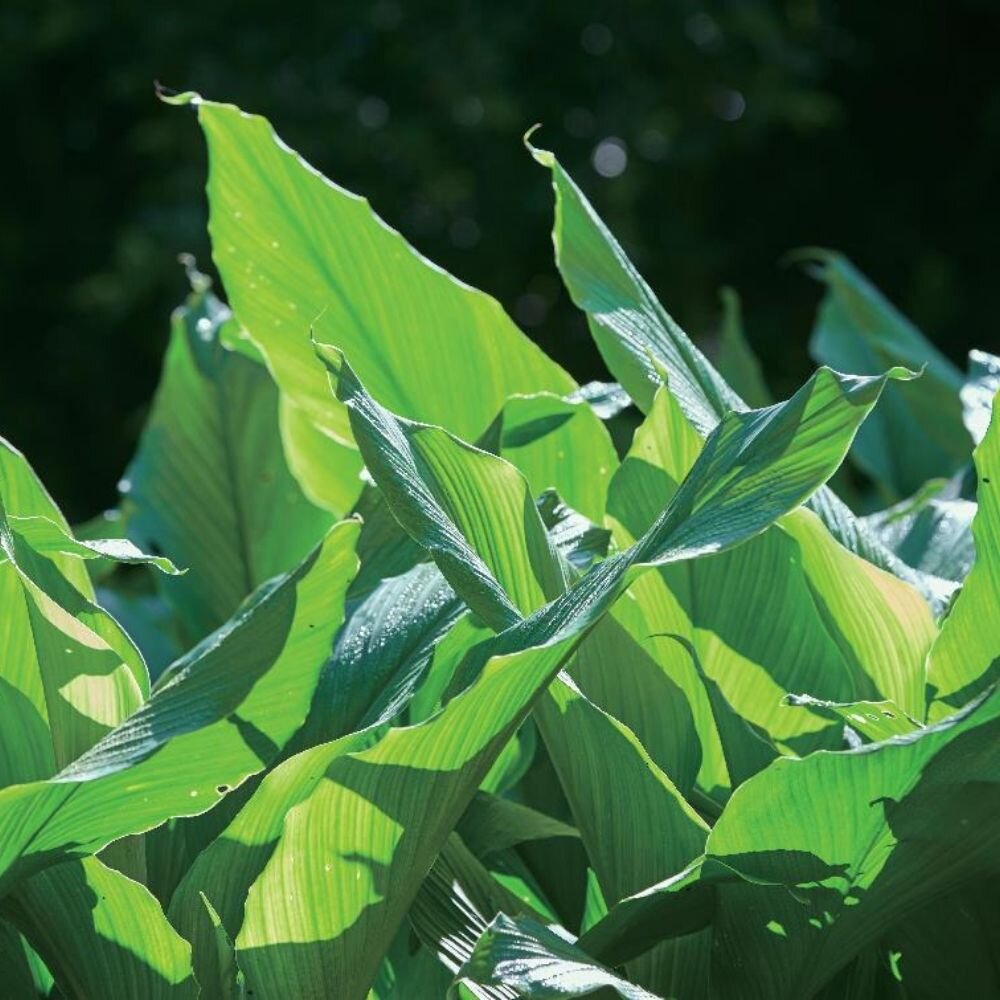Herb of longevity
Turmeric is a pungent, bitter and astringent spice that is part of the ginger family. There exists many varieties, four of which are grown in Okinawa – spring (or wild), autumn (or yellow), black, and white. Turmeric is widely consumed in Okinawa in beverages, snacks, condiments, dishes, and more. Unique production methods have been developed to reduce the bitterness by fermentation.
Curcumin
Orange turmeric, in particular, autumn turmeric, has a pigment, curcuminoid; which contains the phytochemical, curcumin. Curcumin is a major component in turmeric that is widely studied for its antioxidant, anti-inflammatory, anti-carcinogenic, and anti-bacterial properties. Curcumin is traditionally taken to improve liver function, and prevent hangovers.
Nutritional benefits
Turmeric contains vitamin B6, calcium, copper, iron, manganese, phosphorus, potassium, dietary fibre, and essential oils.
This potent herb has been used for thousands of years to combat various ailments. Turmeric is commonly believed to improve cognitive function, boost immunity, regulate blood pressure, aid digestion, prevent joint inflammation, help liver function, and treat acne and dermatitis.
Popular types of turmeric
Spring or wild turmeric
This has a strong bitter spiciness. The curcumin level is lower at about 0.3%. It contains minerals, such as calcium, potassium, phosphorus, magnesium, and iron. In addition, it is rich in essential oils that strengthen liver function and support digestive health, for example, by encouraging the production of bile that helps digestion. It also helps cardiovascular health by improving blood cholesterol, and regulating blood pressure.
Autumn or yellow turmeric
This less aromatic turmeric has a lighter bitterness. It is particularly rich in curcumin at about 2.3%. In addition, it contains essential oils, potassium, vitamin C, and carotene. It has strong antioxidant, anti-bacterial and anti-inflammatory properties. As such, it is popularly used to help reduce inflammation of the stomach lining, It promotes the secretion of bile and strengthens liver function. This turmeric is commonly used to boost cardiovascular health through the lowering of blood cholesterol and blood pressure.
Purple or white turmeric
Purple or white turmeric (zedoary) is a stronger-smelling turmeric with a bluish-purple colour. There is no curcumin in this turmeric type. Instead, it is especially rich in essential oils, such as cineol (eucalyptol) and camphor; which have various benefits, such as anti-inflammatory and analgesic effects. Purple turmeric is believed to fight periodontal (gum) disease. It is also known to sterilise H. pylori, the bacteria responsible for causing ulcers in the stomach and digestive tract. In addition, it promotes bile secretion that improves digestion, and is known to have hepatoprotective properties that prevent liver damage.
Fermented turmeric
Fermented turmeric is popularly consumed because the fermentation process reduces the bitterness making it more pleasant to consume. The functions of turmeric are seen to be stronger while the nutrients and active compounds become more easily absorbed by the body.




